| Pamela Soltis University of Florida 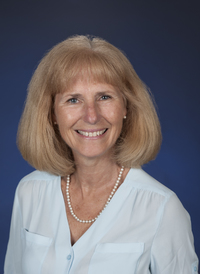 |
Pamela S. Soltis is a Distinguished Professor and Curator of Molecular Systematics and Evolutionary Genetics in the Florida Museum of Natural History at the University of Florida. She received a B.A. from Central College in Pella, Iowa, and the Ph.D. from the University of Kansas. She joined the UF faculty in 2000, after 14 years at Washington State University. Dr. Soltis’s research is motivated by her passion for biodiversity, especially plants. She uses genomic methods and computational modeling to understand patterns and processes of plant evolution and identify conservation priorities. Much of her current work focuses on plant diversity and conservation in Florida, but her research has taken her throughout the US and Canada and to Costa Rica, New Caledonia, Spain, China, and Brazil. She is Director of UF’s Biodiversity Institute and has served her profession as President of the Botanical Society of America, President of the Society of Systematic Biologists, a Council Member of the American Society of Plant Taxonomists and the Society for the Study of Evolution, and an associate editor of numerous journals. She is particularly interested in connecting heterogeneous data to gain new insight into plant evolution and works with large collaborative networks. |
| Doreen Main Washington State University 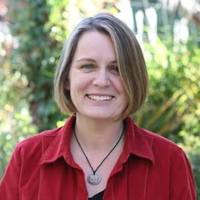 |
Doreen (Dorrie) Main is a Professor of Bioinformatics in the Department
of Horticulture at Washington State University. She received her MS in
Information Management and a PhD in Bioscience and Biotechnology from the
University of Strathclyde, Glasgow, Scotland. For the last 15 years her research
has largely focused on the development of sequence analysis pipelines, online
informatics tools, and genomic, genetic and breeding databases to enable basic,
translational and applied crop research. Her industry and federally supported
program currently hosts databases for 25 crops including tree fruits, berries,
cool season legumes and cotton using the generic, resource-efficient,
open-source Tripal database platform. |
| TBA | |
| Luca Comai University of California at Davis 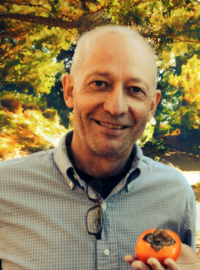 |
Luca
Comai is professor of Plant Biology at the Genome Center of the University of
California at Davis. He has B.S. equivalent in agricultural sciences from the
Universita' di Bologna, Italy, an M.S. in plant pathology from Washington
State University, and a Ph.D. in plant pathology from UC Davis. In his Ph.D.
thesis he elucidated the genetic basis of IAA production in bacteria, later
found to be homologous to that encoded by Agrobacterium T-DNA. Dr. Comai joined
the Calgene biotechnology startup as a scientist in 1981 where he worked on
crop plant modification, providing the first demonstration that glyphosate
resistance could be engineered through alteration of EPSP synthase. He joined
the faculty at the University of Washington in 1990 where he initiated work on
genetics and genomics of polyploidy, and co-developed TILLING with colleagues.
Since joining UC Davis, he continues developing approaches to functional
genomics and genome analysis, with an emphasis on function and regulation of
chromosomes and polyploid genomes. Dr. Comai has authored over 100
publications, has an H impact factor of 63 and is a Fellow of the American
Association for the Advancement of Science. |
| Kiran Mysore Noble Foundation 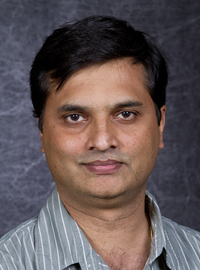 |
Kiran
Mysore is a Professor at the Plant Biology Division at the Samuel Roberts Noble
Foundation. He also holds Adjunct Professorship at the Department of Entomology
and Plant Pathology, Oklahoma State University. He received his Bachelor’s
degree in Agriculture at the University of Agricultural Sciences, Bangalore
(India), Master’s degree in Horticulture at Clemson University and Ph.D. in
Genetics at Purdue University in 1999. He did his postdoctoral training in
plant genomics at the Boyce Thompson Institute for Plant Research, Cornell
University. His research interests center on molecular plant-microbe
interactions and plant genetic resource development. He has published over 150
papers and book chapters. |
| Sally MacKenzie University of Nebraska  |
Sally
Mackenzie is the Ralph and Alice Raikes Distinguished Chair of Plant Science
at the University of Nebraska-Lincoln. Sally initiated her career at
Purdue University in 1989, and joined the faculty at the University of
Nebraska in 1999 in the Department of Agronomy and Horticulture. Her laboratory
research focuses on plant organellar properties that influence epigenetic
behavior, and the exploitation of these interactions to induces changes in
plant growth properties. Sally is a Quishi Chair Professor at Zhejiang
University in Hangzhou, China, and serves as President-elect for the American
Society of Plant Biologists. |
| Jared Decker University of Missouri 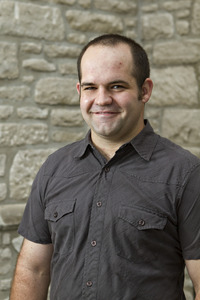 |
Jared Decker is an assistant professor in the University of Missouri Division of Animal Science and Beef Genetics Extension Specialist. He also is a member of the Genetics Area Program and University of Missouri Informatics Institute. Decker received his B.S. from New Mexico State University, graduating with top honors. He majored in Animal Science with a minor in Biology. He earned his Ph.D. at the University of Missouri in Genetics, with a Ph.D. minor in Statistics. Jared is working to help stakeholders in the beef industry better understand the rapidly changing genetic technologies. His research focuses on understanding the history and selection of cattle breeds and improving the cost and accuracy of genomic prediction tests. He is active on social media and his website A Steak in Genomics. |
| Carolyn Lawrence-Dill Iowa State University 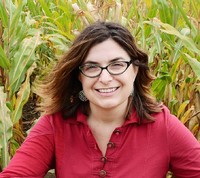 |
Carolyn Lawrence-Dill is an Associate Professor in the Department of Genetics, Development and Cell Biology at Iowa State university. She has devoted the last 15 years to developing computational systems/solutions that support the plant research community. Her work enables the use of existing and emerging knowledge to establish common standards and methods for data collection, integration, and sharing. Such efforts help to eliminate redundancy, improve the efficiency of current and future projects, and increase the availability of data and data analysis tools for plant biologists working in diverse crops across the world. Carolyn led the USDA’s maize model organism database MaizeGDB (http://maizegdb.org/) for a decade, currently coordinates the development of the information platform for the US maize Genomes to Fields Initiative (http://www.genomes2fields.org/), and is an active member of the community working to put in place methods for phenotype data access, analyses, and re-use. Carolyn has served in advisory roles as a member of the Maize Genetics Executive Committee (2014 chair), the iPlant/CyVerse Scientific Advisory Board, the maize nomenclature committee, the Legume Information System Working Group, the SoyBase Working Group, etc. To learn more about her contributions to plant biology and information access, visit https://scholar.google.com/citations?user=bHQPmtEAAAAJ&hl=en.
|
| Steven White USDA ARS-Pullman |
Stephen N. White is a Research Geneticist with the USDA-ARS Animal Disease Research Unit in Pullman, WA and is a member of the international Steering Committee for FAANG, the Functional Annotation of ANimal Genomes project. He also holds adjunct faculty appointments in the Department of Veterinary Microbiology & Pathology and the Center for Reproductive Biology at Washington State University. He earned a B.S. in Biology from Duke University, and then a Ph.D. in Genetics from Texas A&M University. His research focuses on genomics of susceptibility to infectious and inherited disease, genetics of complex traits, and development of applied genetic technologies for many ruminant livestock and other domestic animal species. Projects include scrapie resistance in domestic goats, sheep genes that restrict lentiviral replication and ovine progressive pneumonia, and a range of other topics in genetics of cattle, wild ruminants, and companion animals. To learn more about Dr. White, please visit: https://scholar.google.com/citations?user=3TBrXlMAAAAJ&hl=en&oi=ao
|
| Mark Lange Washington State University 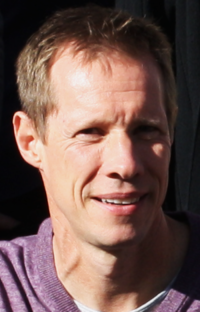 |
Bernd Markus (“Mark”) Lange is currently an
Associate Professor at the Institute of Biological Chemistry at Washington
State University. He received an M.S. degree from the University of Bonn and a
Ph.D. degree from the University of Munich, both in Germany. Following postdoctoral studies at the
University of Tübingen (Germany) and Washington State University, Mark spent
several years as a team leader in the biotechnology industry (working for Novartis,
Syngenta and Diversa). In 2004, he
joined the faculty at Washington State University and built a program focused
on understanding metabolism in specialized plant cells that are responsible for
the synthesis of essential oils, oleoresins, and pharmaceutically relevant
natural products. Mark has directed
biotechnological and more recently breeding efforts to develop mint cultivars
with enhanced oil yield and composition.
His laboratory is employing mathematical modeling to quantitatively
describe oil and resin biosynthesis at various scales from individual genes or
enzymes to entire plants. |
| Tim Paulitz USDA ARS-Pullman |
Dr. Paulitz earned a BSc in Botany and a minor
in Plant Pathology from |
| Larry Forney University of Idaho 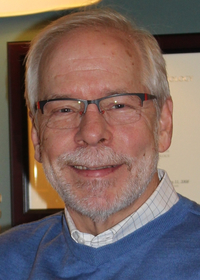 |
Larry
Forney is a University Distinguished Professor in the Department of Biological
Sciences at the University of Idaho. He
is currently director of an NIH-funded Center of Biomedical Research Excellence
and until recently was director of the Institute for Bioinformatics and
Evolutionary Studies (IBEST) at the University of Idaho. Prior to this he was
professor of microbial ecology at the University of Groningen in The
Netherlands, associate director of the Center for Microbial Ecology at Michigan
State University, and a senior scientist at Synergen, Inc. His scientific expertise rests in the
evolutionary ecology of prokaryotes and microbial community ecology. He has pioneered the development of molecular
microbial ecology methods to understand the extent and distribution of
microbial diversity, to characterize within species genetic diversity, and the
evolution of novel microbial traits. His accomplishments in microbial evolution
and ecology and scientific leadership have been recognized through various
awards and by appointment as a Fellow of the American Academy of Microbiology. |
| Sindhuja Sankaran Washington State University 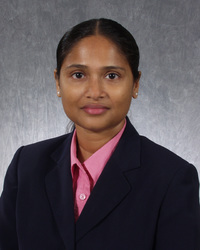 |
Sindhuja Sankaran joined Washington State University in 2013 as an Assistant professor in the Department of Biological Systems Engineering. She received a BS degree in Zoology, and MS in both Environmental Science and Environmental Engineering. She received her PhD in Agricultural and Biosystems Engineering (2009) from North Dakota State University and was also postdoctoral associate at University of Florida until 2013. Her research interests are towards advanced sensing techniques for high-throughput crop phenotyping. Her work also involves development and characterization of opto-electronic and biomimetic chemical sensor technologies for non-invasive, rapid and continuous crop monitoring applications. In 2015, she organized a conference on ‘Advances in field-based high-throughput phenotyping and data management’ in collaboration with collegues from WSU and other U.S. institutions. |
| Edgar Spalding University of Wisconsin 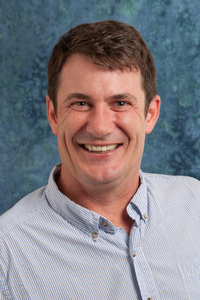 |
Edgar
Spalding
received a B.Sc.H. degree from Acadia University in 1985 and a Ph.D. in biology
from Penn State in 1990. He conducted postdoctoral research in plant membrane
transport at Yale University until beginning an assistant professor position in
the Department of Botany at the University of Wisconsin-Madison in 1994, where
he is now a full professor. Dr. Spalding considers himself to be a plant
physiologist with a penchant for getting computers to measure details of
seedling growth and development, especially when the results can be used to
learn about gene functions or basic physiological processes such as auxin
transport and signaling. |
| Jeff White USDA ARS-Arizona 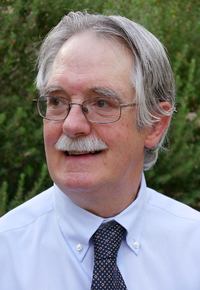 |
Jeff White has a BA in Biology from Harvard and a PhD in Botany from the University of California, Berkeley. He is a Research Plant Physiologist with the USDA Agricultural Research Service and is stationed at the Arid Land Agricultural Research Center near Phoenix, Arizona. Previous to joining USDA, Dr. White worked as a crop physiologist at the International Potato Center (CIP; Lima, Peru), the Centro Internacional de Agricultura Tropical (CIAT; Cali, Colombia), and the International Maize and Wheat Improvement Center (CIMMYT; El Batan, Mexico). Dr. White is a Fellow of the American Society of Agronomy. Dr. White has a long interest in the understanding physiological and genetic mechanisms of adaptation to temperature and water deficits. He pioneered inclusion of genetic information in ecophysiological models. Current research emphasizes development of high-throughput systems suitable for phenotyping large populations in field trials under water deficit and high temperature stresses. |
| Seungho Cho Monsanto 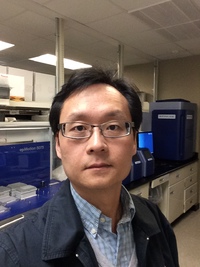 |
Seungho Cho is a Varietal Crop Germplasm Discovery Scientist at Monsanto. He received Ph.D. in Genetics and Cell Biology from Washington State University in 2003 for his study on fungal disease resistance in chickpea. After postdoc research in Department of Agronomy and Plant Genetics focused on molecular genomics of cereal crops, he joined BASF Plant Science in 2006 and worked on molecular genomics platform development and HTP lab operation. In 2010, he joined Monsanto as Molecular Breeder specialized in cotton and now supporting all varietal crops in the areas of trait genetics and breeding technology discovery. |
| Rollin Sears Kansas State/Syngenta 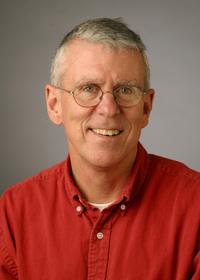 |
Rollin G. Sears retired from Syngenta in 2015. He was a Senior Science Fellow and Senior Manager for Syngenta, leading research and development for cereals in North America. As a wheat breeder, he focused on improved wheat production efficiency through the release of improved wheat cultivars. Dr. Sears has been able to combine both high yield and improved milling and baking properties into widely adapted wheat cultivars in North America. Rollie earned his degrees at Montana State University (MS) and Oregon State University (PhD) and joined Kansas State University as an assistant professor in 1980, rising to professor before joining Syngenta in 1999. He has received the Kansas Farm Bureau’s Distinguished Service to Agriculture Award, The Kansas Association of Wheat Growers Wheat Man of the Year award, Distinguished Graduate Faculty Award from Kansas State University, the American Society of Agronomy Agronomic Research Award and the 2007 Oregon State University Distinguished Service Award. Oregon State University School of Agriculture recognized him with their Alumni Legacy award in 2013. Dr. Sears is a Fellow of both the American Society of Agronomy and Crop Science Society of America.
|
| Henry Nguyen University of Missouri 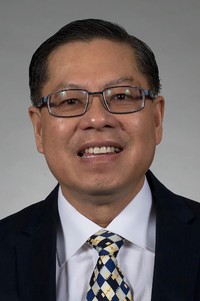 |
Henry T. Nguyen is Curators’ Professor of Plant Sciences and Endowed
Chair in Soybean Genomics and Biotechnology. He served as Director of the
National Center for Soybean Biotechnology from 2003 to 2015. Prior to the
current position, he was the Board of Regents’ Paul Whitfield Horn professor at
Texas Tech University with a joint appointment with Texas A&M University.
He has a distinguished career in plant genetics and biotechnology and is
internationally recognized for his research in plant adaptation to stress
environments. His research team conducts genetic analysis of major traits and
applies molecular marker technology to soybean improvement. Dr. Nguyen has
gained recognition through many awards such as the National Science
Foundation’s Presidential Young Investigator Award and the Young Crop Scientist
Award. He was elected as Fellow of the Crop Science Society of America, Fellow
of the American Society of Agronomy, and Fellow of the American Association for
the Advancement of Science. He has served on several editorial boards and
published more than 250 refereed articles and 35 book chapters. He chairs the
Abiotic Stress Workshop at the International Plant and Animal Genome Conference.
He coordinates a large scale soybean genome sequencing project aimed toward the
development of next generation genomics-assisted trait discovery and breeding
strategies. |


